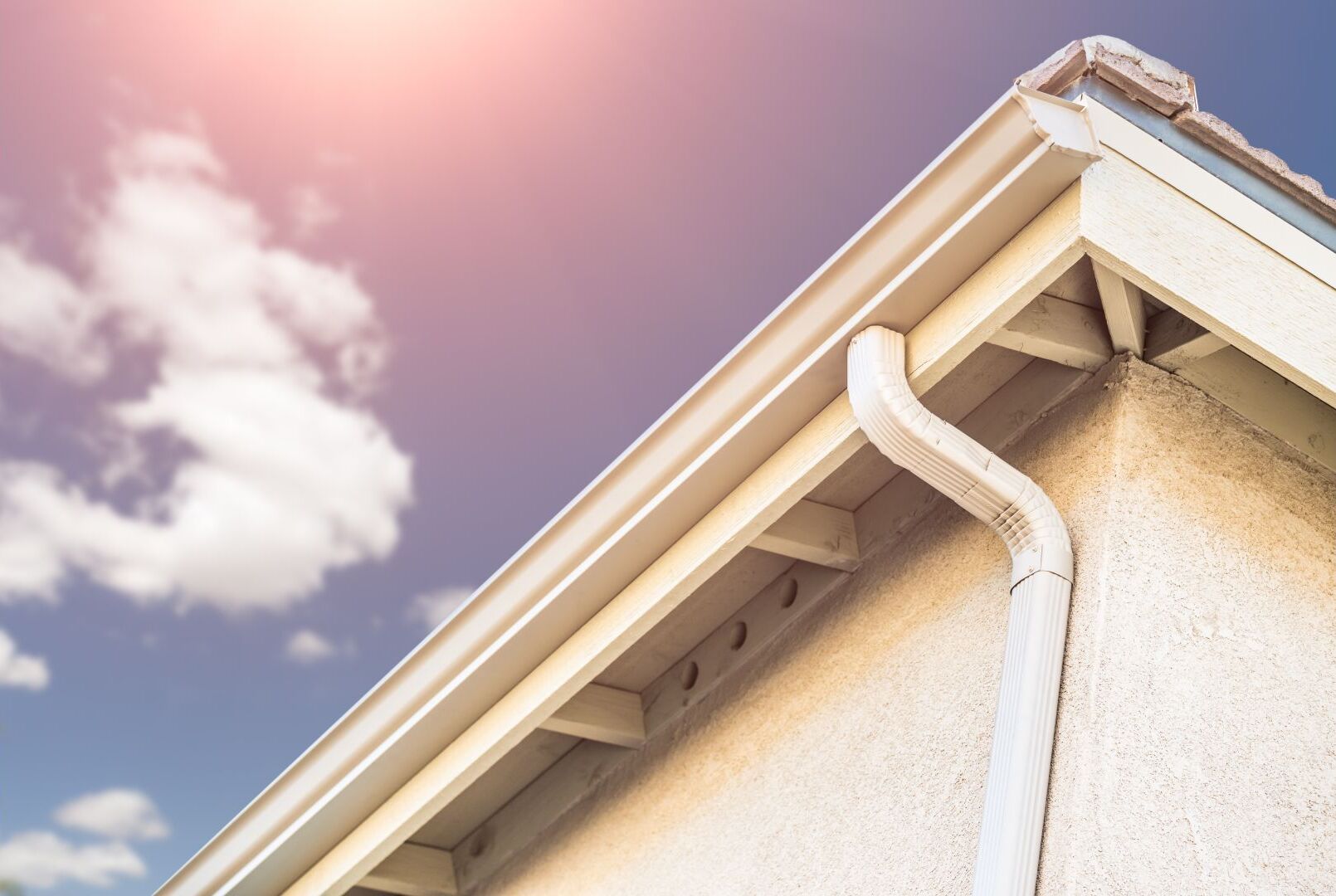
Comparing Gutter Materials: Which One is Right for Your Home’s Installation?
Gutters play a crucial role in protecting your home from water damage by directing rainwater away from your home’s foundation, walls, and landscaping. However, not all gutters are created equal, and the materials used in their construction can significantly impact their durability, maintenance requirements, and aesthetics. In this blog, we’ll compare the most common gutter materials to help you make an informed decision when choosing the best option for your home’s gutter installation.
Common Gutter Materials
Gutters can be found in a variety of different materials, each working differently to provide effective water management solutions. Some of the most common gutter materials include vinyl, aluminum, steel, and copper. Each gutter material has its own unique benefits and drawbacks, so it’s important to explore each option before making a decision.

Aluminum Gutters:
One of the most popular choices for gutter installations, aluminum gutters offer several advantages. They are lightweight, rust-resistant, and available in a wide variety of colors to match your home’s exterior. Furthermore, they can be easily shaped, making them suitable for custom installations.
Pros:
- Lightweight and easy to install
- Rust-resistant
- Available in various colors
- Can be customized for unique installations
Cons:
- Can be prone to denting and damage from heavy debris
- May not be suitable for areas with extreme temperature fluctuations
Vinyl Gutters:
Vinyl gutters have become increasingly popular due to their affordability and low maintenance requirements. These gutters are made from a type of plastic that is resistant to rust, rot, and corrosion. Additionally, they are lightweight and easy to install, making them an attractive option for DIY enthusiasts.
Pros:
- Affordable
- Low maintenance
- Rust, rot, and corrosion-resistant
- Lightweight and easy to install
Cons:
- Can become brittle and crack in extremely cold temperatures
- Limited color options compared to aluminum gutters

Steel Gutters:
Galvanized steel gutters are known for their strength and durability, making them an excellent choice for areas with heavy snowfall or extreme weather conditions. However, they do require more maintenance than aluminum or vinyl gutters, as they can be prone to rust if not properly maintained.
Pros:
- Strong and durable
- Suitable for areas with heavy snowfall or extreme weather
- Can support the weight of heavy debris
Cons:
- Prone to rust if not maintained properly
- Heavier than aluminum or vinyl gutters, making installation more challenging
- May require more frequent maintenance
Copper Gutters:
Copper gutters are often chosen for their aesthetic appeal and long-lasting durability. They develop a beautiful patina over time, adding a unique touch to your home’s exterior. While copper gutters are more expensive than other materials, their longevity and low maintenance requirements can make them a worthwhile investment.
Pros:
- Aesthetically pleasing with a natural patina that develops over time
- Long-lasting and durable
- Low maintenance requirements
Cons:
- Expensive compared to other gutter materials
- Installation may require a professional due to the material’s weight and specialized techniques

When selecting the best gutter material for your home, it’s essential to consider factors such as your local climate, budget, and aesthetic preferences. Each material has its unique advantages and disadvantages, and understanding these differences can help you make the best decision for your home’s installation. By choosing the right material, you’ll not only enhance your home’s appearance but also protect it from potential water damage for years to come.
Understanding the Cost of Different Gutter Materials:
When considering gutter installation, it’s crucial to factor in the cost of the materials. Prices can vary significantly depending on the type of gutter you choose, as well as the size of your home and the complexity of the installation. In this section, we’ll break down the average costs of the most common gutter materials to help you make an informed decision based on your budget.
Aluminum Gutters:
Aluminum gutters are considered a cost-effective option, with prices typically ranging from $4 to $8 per linear foot. The cost may vary depending on factors such as the thickness of the aluminum and any additional features like leaf guards. Keep in mind that while aluminum gutters are relatively affordable, they may not be as durable as some other materials, especially in regions with extreme weather conditions.
Vinyl Gutters:
Vinyl gutters are known for their affordability, with prices generally ranging from $3 to $6 per linear foot. This low cost, combined with their low maintenance requirements, makes vinyl gutters an attractive option for homeowners on a tight budget. However, it’s essential to consider that vinyl gutters may not be suitable for areas with extremely cold temperatures, as they can become brittle and crack over time.

Steel Gutters:
The cost of galvanized steel gutters usually falls between $4 and $10 per linear foot, depending on factors such as thickness and any additional features. While steel gutters can be more expensive than aluminum or vinyl options, their strength and durability make them a good investment for homeowners in areas with heavy snowfall or extreme weather conditions. It’s important to note that steel gutters require more frequent maintenance to prevent rust and corrosion.
Copper Gutters:
Copper gutters are the most expensive option, with prices ranging from $15 to $30 per linear foot. This higher cost is attributed to the material’s natural beauty, durability, and low maintenance requirements. While copper gutters may be a significant investment upfront, their longevity and unique aesthetic appeal can make them a worthwhile choice for homeowners seeking a high-end look and long-lasting gutter solution.
The cost of gutter materials is an important factor to consider when planning your home’s gutter installation. While budget plays a significant role in your decision, it’s also essential to weigh the long-term benefits and drawbacks of each material. By understanding the costs associated with aluminum, vinyl, steel, and copper gutters, you can make a well-informed choice that meets your specific needs, preferences, and budget constraints. Ultimately, investing in the right gutter material can save you money and hassle in the long run by providing reliable protection for your home against potential water damage.
